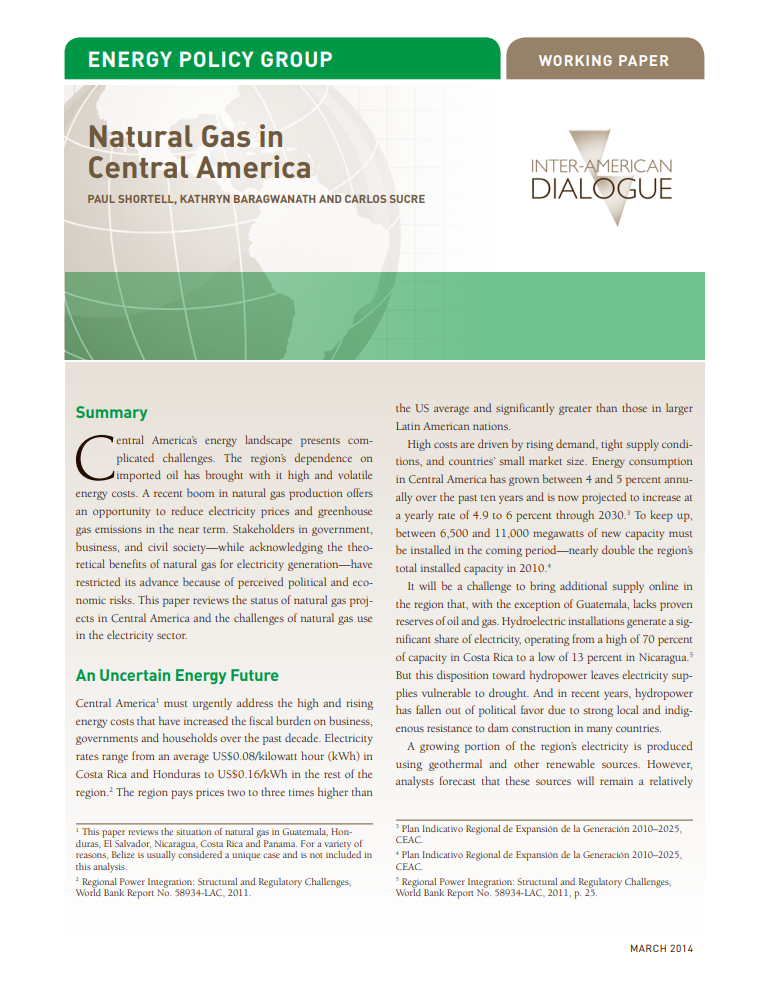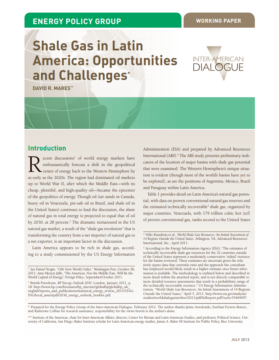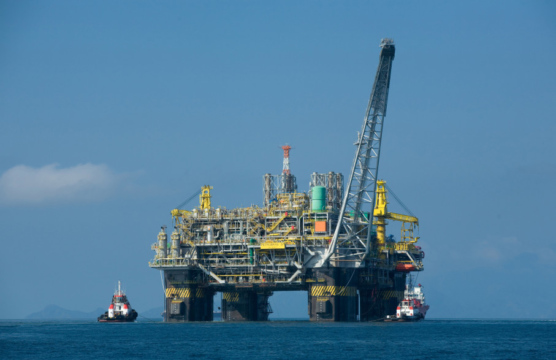Central America and the Politics of Electric Integration
Despite setbacks, Central Americans are committed to a new energy future.
We are pleased to present another working paper of the Inter-American Dialogue’s Energy Policy Group. This paper was prepared by Paul Shortell, program assistant for energy policy at the Inter-American Dialogue, along with Kathryn Baragwanath, an independent analyst based in Santiago, Chile, and Carlos Sucre, a consultant in the energy division of the Inter-American Development Bank (IDB). The working paper is part of a series of studies carried out through the Dialogue’s initiative on energy policy in the Americas.
Established in 2009 with the generous support and cooperation of the IDB, the Inter-American Dialogue’s Energy Policy Group is a professionally and politically diverse group of some 20 energy analysts, corporate leaders, and policymakers. The group is led by Inter-American Dialogue senior fellow Genaro Arriagada, a distinguished Chilean analyst and former minister of state. The views expressed in this working paper do not necessarily reflect those of Energy Working Group members or the Inter-American Dialogue.
In the working paper, the authors analyze the potential for natural gas development in Central America’s electricity sector. Shortell, Baragwanath and Sucre review the region’s pressing energy challenges and highlight the opportunities presented by the US shale gas revolution. They provide a panorama of natural gas policies and assess the obstacles that remain in the region’s six countries. The authors conclude by addressing the diverse technical and institutional challenges that have delayed Central America’s development of natural gas. These include: unaligned national policies and priorities; critical gaps in information; and a lack of collective action among governments on energy issues.
Previous papers in this series have dealt with a diverse set of energy policy issues, including the “energy triangle” between China, the US and Latin America, opportunities for shale gas in Latin America, social conflicts over energy development, and the management of Brazil’s national oil company Petrobras. Our aim is to inform and shape national and regional policy debates on the energy challenges confronting the countries of Latin America, improve the quality of attention to those challenges, and encourage multilateral cooperation to address them.
Despite setbacks, Central Americans are committed to a new energy future.
Unless resource nationalism can be made compatible with providing incentives for significant foreign participation, it may be too early to start trumpeting a bonanza for Latin America.
Oil and gas production in the United States and Canada has increased considerably since 2008.


